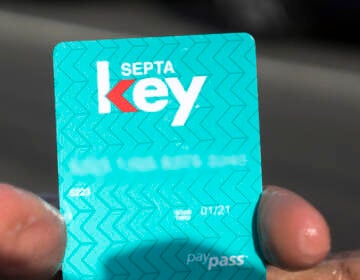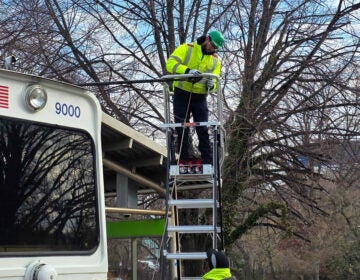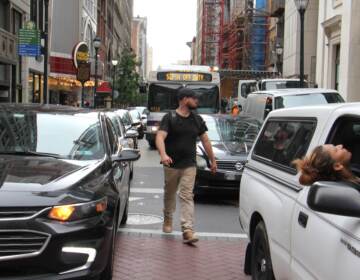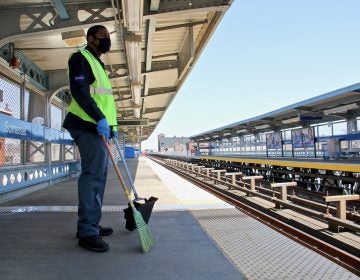SEPTA is piloting a new gate to help stop turnstile jumping
The transit agency is testing out a new gate system at 69th Street Station that would replace the traditional turnstiles currently in use.
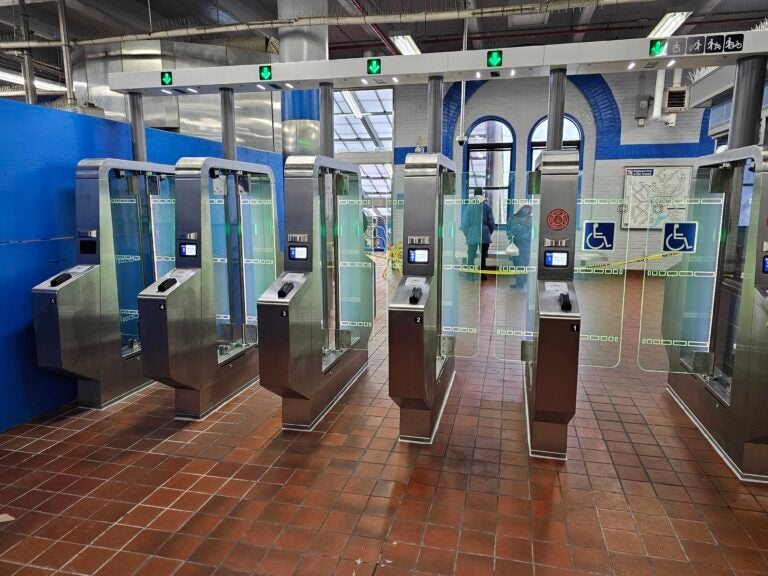
New test gates at 69th Street Station (Tom MacDonald/WHYY)
From Philly and the Pa. suburbs to South Jersey and Delaware, what would you like WHYY News to cover? Let us know!
SEPTA is testing out a new way to stop people from not paying for their rides.
In a million-dollar experiment, the transit agency installed about two dozen gates at 69th Street Station to replace the traditional turnstiles. CEO Leslie Richards said the gates are high-tech and designed to keep people who don’t pay their fares out.
“Our older turnstile fare system was designed to be as accessible as possible. We still want to be accessible, but we realize people are taking advantage of that,” she said. “We need people to know that you must pay to get on SEPTA, that this is a service and it’s not fair to our riders who do pay every ride.”
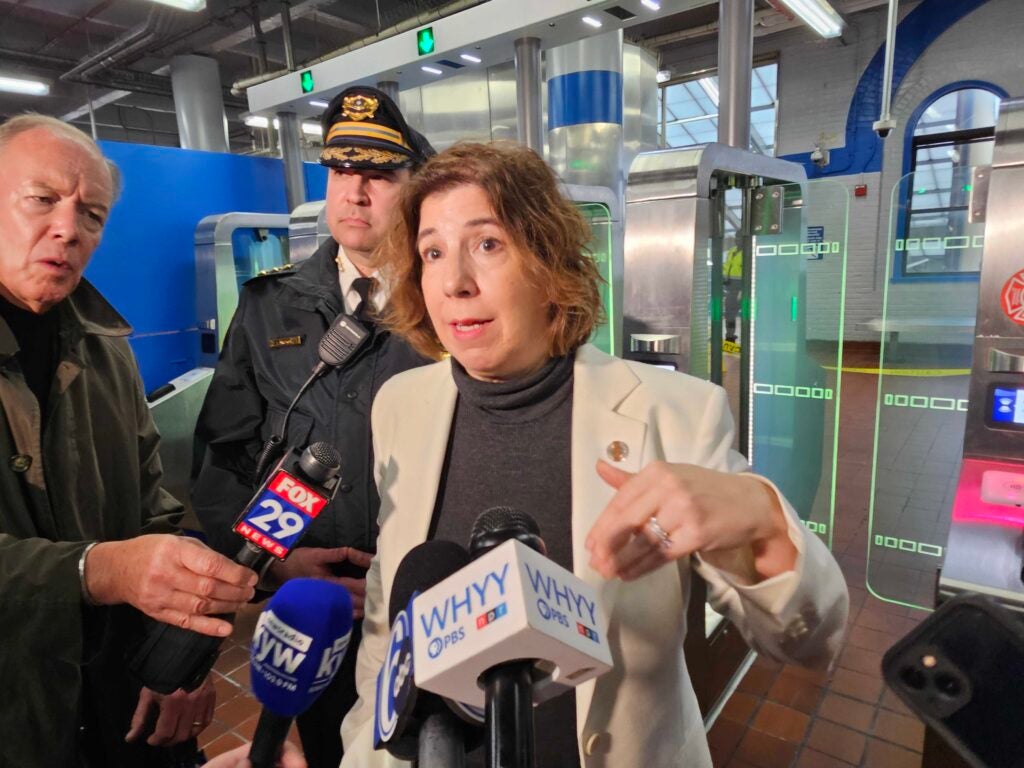
The traditional turnstiles were replaced with doors that open and close quickly, guided by 3D imaging. SEPTA Police Chief Chuck Lawson said those hopping the gates do more than skip the fare.
“Our message that we’re sending out with bringing in tools like this and through our enforcement is, we are enforcing fair evasion out of this system to the extent that we can,” he said.
If the test at 69th Street is successful, the new gates will expand to other parts of the system where fare evasion is prevalent.
“My wish is that we put it through the entire system. And when I say that, that would go through our subway system first. We would look at our trolley system second,” Richards said. “We have to take a study on Regional Rail because as you know, you don’t need to go through gates like this on Regional routes. It’s an entirely different access point.”
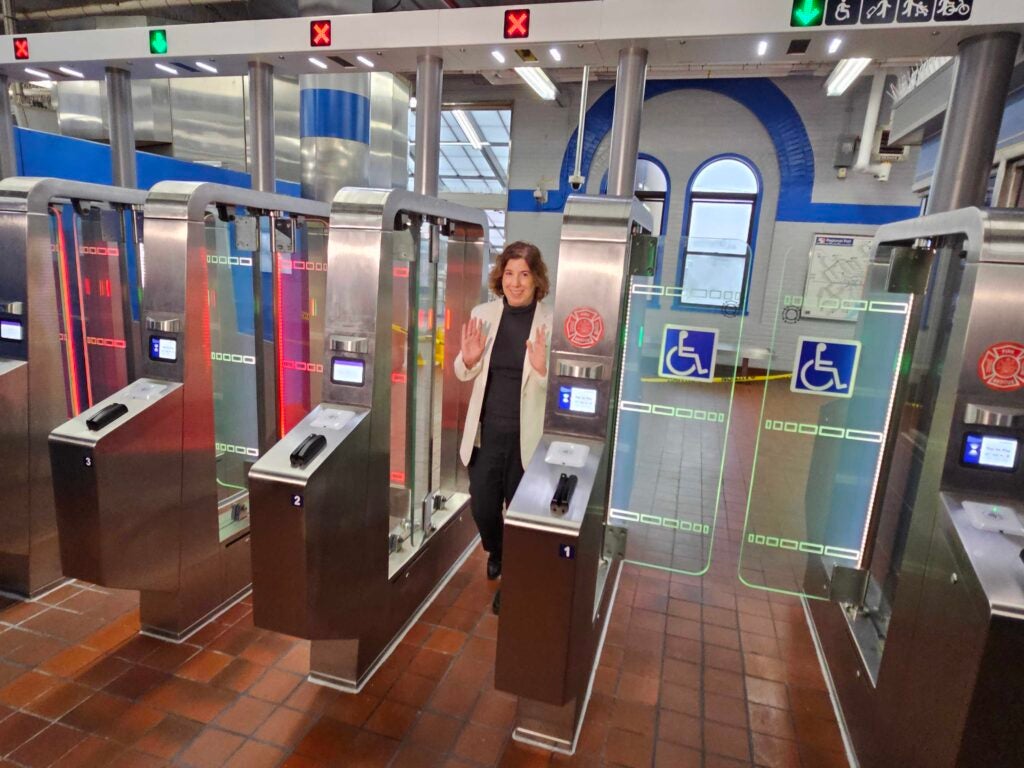
To do that would be a sizable expense, with an estimated cost of $50 million. Richards said they would have to find an outside funding source to cover the cost.
“We’ll be talking to the city. We’ll be talking to our funding partners. We are very optimistic that this is going to be a good experience for us and help us address a very serious issue here.”
WHYY is your source for fact-based, in-depth journalism and information. As a nonprofit organization, we rely on financial support from readers like you. Please give today.



